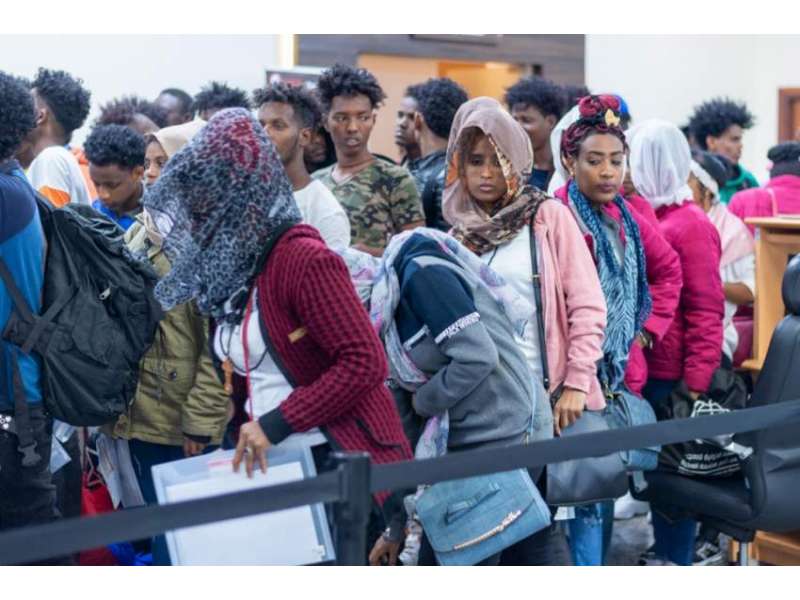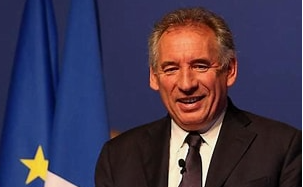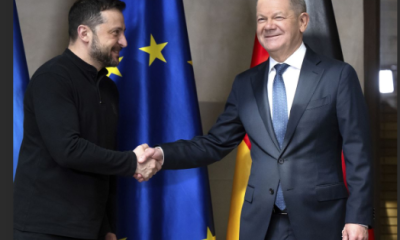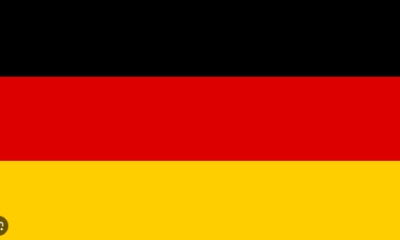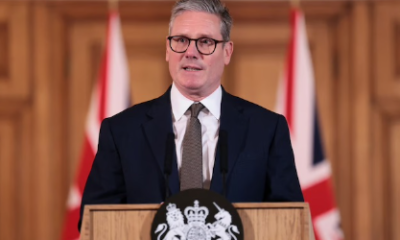Europe braces for wave of refugees as Ukrainians flee Russian attack.
The UN sounded a dire warning on Friday, saying Russia’s invasion of Ukraine could trigger a wave of refugees in neighbouring countries and that thousands had already made the journey.
The UN Refugee Agency in Geneva said that if the war continues to escalate, then it expects up to four million people to seek refuge outside Ukraine.
Thousands have already streamed across the border into Poland and Slovakia, as well as Russia and Moldova, it said.
“Maybe good people will help us,’’ said Halina Drohantschuk, who was with her three children at a parking lot on the Polish side of the Medyka-Shehyni border crossing on Friday.
She left Lviv, in western Ukraine, the night before, while her husband, Ivan, had to stay behind. “They will not let him out, he is of military age.’’
In the parking lot, volunteers offer tea, coffee and sandwiches while a bus took refugees to a reception point.
Meanwhile more than 10,000 people have entered Romania from Ukraine within 24 hours, Romanian Interior Minister Lucian Bode said.
That is more than twice as many as immediately before the Russian invasion, he said.
Out of the 10,624 Ukrainians who entered, 3,660 have since travelled on, including to Bulgaria and Hungary, the minister added.
Eleven people applied for asylum in Romania.
The UN children’s agency UNICEF said it was setting up shelters for women and children along escape routes and expanding its presence in the region.
Slovakia earlier on Thursday evening said that it was already experiencing a rush on its border.
A queue formed at the Slovakia-Ukraine border crossing of Vysne Nemecke with waiting times up to eight hours, the Slovak customs administration said.
The Slovak health authorities announced that war refugees were exempt from all Coronavirus-related entry restrictions that apply to other entrants.
Poland recently said it planned to erect emergency shelters.
Hungary said this week it was sending additional troops to the border to manage an anticipated influx, including by providing humanitarian aid.
EU interior ministers were due to hold an urgent meeting on Saturday to discuss the potential for a large-scale wave of refugees into the bloc.
French Interior Minister Gérald Darmanin announced the meeting on Twitter but did not give any further details, such as the time and place.
Meanwhile, Ukrainians can now travel free of charge by train in the Czech Republic.
They only have to show their passport during ticket control, the state-owned railway company Ceske Drahy said.
This is to enable Ukrainians who want to respond to Kiev’s general mobilisation order to quickly return to their home country, the railway said.
Travelling to Ukraine by train is currently still possible via Poland, the more direct train connections via Slovakia have been temporarily suspended.
The state-owned Ukrainian railway company Ukrzaliznytsia is to evacuate citizens with a special train scheduled to depart on Friday afternoon from the city of Zaporizhzhya, not far from the embattled city of Mariupol in the south-east of the country.
It was not specified where the train is heading to.
The company told passengers it was safe to come to the station as “the situation is under control,’’ but urged them to not disclose their geo-location during the journey, possibly fearing attacks.
According to figures from the Ministry of the Interior in Prague, almost 200,000 Ukrainians were living in the Czech Republic at last counted; many of them work in low-paid jobs in construction, factories and cleaning.
Ukrainians are now the largest group of foreigners in the EU member state ahead of Slovaks and Vietnamese.

 Health5 days ago
Health5 days ago
 Entertainment7 days ago
Entertainment7 days ago
 Crime6 days ago
Crime6 days ago
 Education1 week ago
Education1 week ago
 Health1 week ago
Health1 week ago
 Comments and Issues6 days ago
Comments and Issues6 days ago
 Football7 days ago
Football7 days ago
 Latest6 days ago
Latest6 days ago
